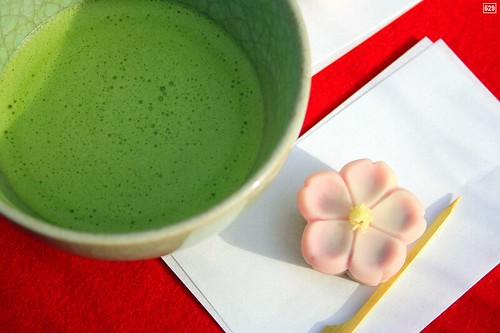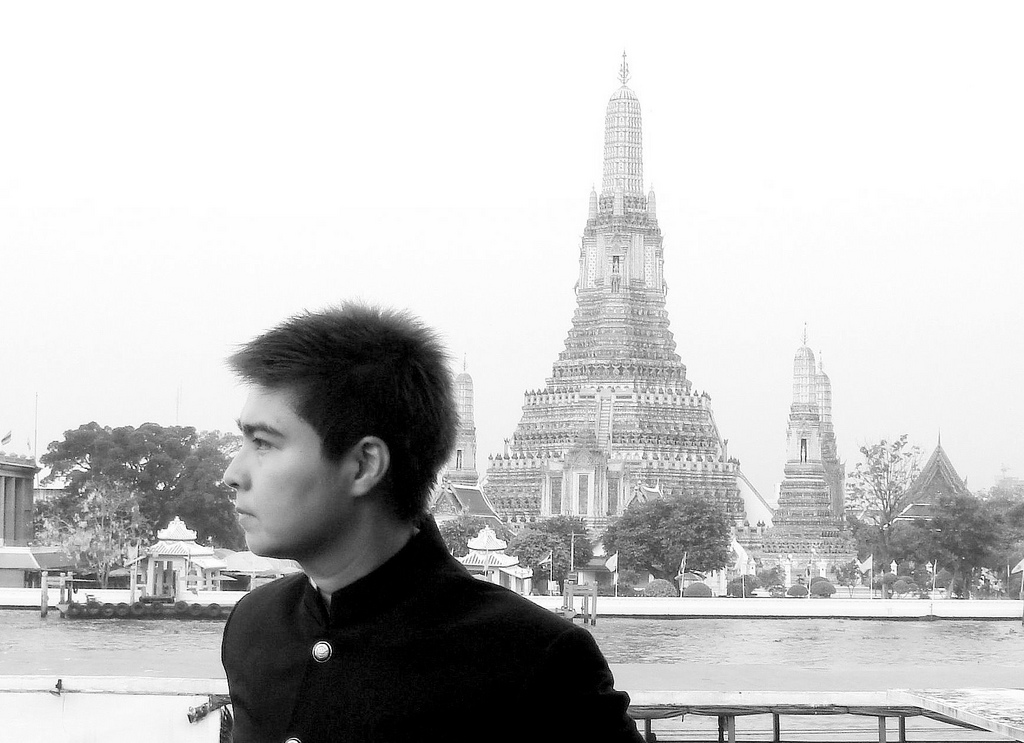
Q: "...Why Zen Sense?..."
(Anonymous reader)
We will begin this week's installment with a very Zen-like question. One that is simple yet profound: why the title of this column is the way it is.
To tell you the truth, it certainly was not the first title that came to the author's mind. But, after much contemplation, the title seems to appear by itself. And since there could also be other readers that are similarly curious, let us address this fundamental yet critical question together, shall we?
As befits a philosophical inquiry, let us begin with a few assumptions. The first assumption is that the full question probably reads, "Why Zen in the land known for its strength in Theravada wisdom?" The second assumption is a bit more general, "What do you mean by Zen Sense?"
HH the Dalai Lama on Theravada wisdom
The first assumption brings to mind a private audience with HH the Dalai Lama while the author was doing research in Japan two autumns ago.
The very first words from HH the Dalai Lama were a half-exclamation. Upon learning what the author was doing in Japan, HH put his hands together (in the wai form) and lifted them high over his head in a sign of great reverence, saying, "Thailand has the highest tradition of Buddhism!"
Being nervous, the author thought at first that HH the Dalai Lama meant to say, "(But) Thailand (already) has the highest tradition of Buddhism. (So, what are you doing here in Japan?)"
Upon calming down, the author realised that it was HH the Dalai Lama's nature to always make his audience feel promptly at peace since most always become speechless by his aura and tend to forget their own lines. One technique HH often uses, once learning where the visitor is from or which group the visitor belongs to, is to immediately say something that honours the visitor's background and at the same time shows his humbleness.
Still stunned by the way HH honoured Thai Theravada Buddhism, the author managed to stammer in a merely audible voice that in fact the main focus of the author's research was mindfulness. To be precise, the author was comparing Theravada's Vipassana meditation to that of Zen's and discovered with delight that they are essentially the same!
To that, HH the Dalai Lama looked deeply into the author's eyes and smiled his compassionate, knowing smile.
So, there it is, the answer to our opening question in the sense of why we are talking Zen here in the land of Theravada. Mindfulness is the same training whether practiced in Thailand, Japan, Tibet, or anywhere for that matter. Teachers or school traditions may have their own style of passing on this gem of a lesson. However, the goals, the practice, and the short-term and long-term rewards are essentially the same.
Zen as a way of life
Now, let us get back to the reasoning behind the column title. As opposed to the word Dhamma which connotes a complete spiritual liberation, the word Zen gives the vibes of a "work in progress." In other words, Zen or mindfulness practice focuses more on the process rather than on the result.
This connotation goes well with the primary objective the author has in mind for the column - to familiarise the readers with the various ways we could readily add mindfulness into our daily life so that we will benefit from it.
Another subtler implication refers to the fact that the author is also a "work-in-progress", someone who still makes mistakes. Zen realises this human imperfection and thus the need for continued practice to return our mind back to its true, pure essence.
The connotation of Zen that is perhaps best-known by all is on Zen as a way of life. Japanese arts and culture present us with vivid examples. Ikebana flower arrangement, Noh theatre, calligraphy, martial arts, Haiku poetry, painting, the tea ceremony, architecture and landscape, these are just a few. What these all have in common is the spirit of "non-judgmental, intentional awareness, in the here and now", which is the heart of Zen or mindfulness practice.
Why Zen is about senses
Even without its deep association with something that titillates our senses such as arts and culture, Zen is still all about the senses. Stripped to the bare, the practice of mindfulness asks us to be hyper-aware of what comes into contact with all our sensorial perception, namely what we see, hear, smell, taste, touch and feel with our mind. One thing at a time, naturally.
The idea is that our mind can perceive clearly just one thing at a time. It is true that many people are prepared to swear that they were born with an ability to multi-task. But if they could see how their mind perceives in the speed of nano-seconds, they would also have to agree that their mind can only do one thing at a time.
This is where a full-scale meditation retreat comes into picture. For those seriously interested in understanding how your body and mind works, a mindfulness retreat experience would allow you to capture that split-second time frame of your life and make a wisdom out of it. Here is the point where mindfulness would deliver a satisfying end result - the true understanding of Dhamma without having to be told by others or without the need to rationalize.
Another pleasant incentive is that secure feeling of knowing that Dhamma could be cultivated in one's own mind "on-demand" - whenever one is mindful enough to "call the shots" in our daily living.
How long would we remain a "work in progress"?
Naturally, we humans need incentives before we put our efforts into something. In this regard, Zen provides real inspiration. The venerable Buddhadasa Bhikkhu, the revered late monk, recognised Zen's strength in bringing an individual to a "sudden realisation." It is up to us, really, to take that first step and try.
The more you are eager to get real results out of mindfulness, the harder you have to try to make time for your first retreat. This is because, to have a chance for that Zen-style "sudden realisation", the late Buddhahasa pointed out that you need to be in a company of a good teacher, someone that could pull all the right triggers in you.
Or, shall we say, you need someone to help instill Zen properly in all your senses?







No comments:
Post a Comment